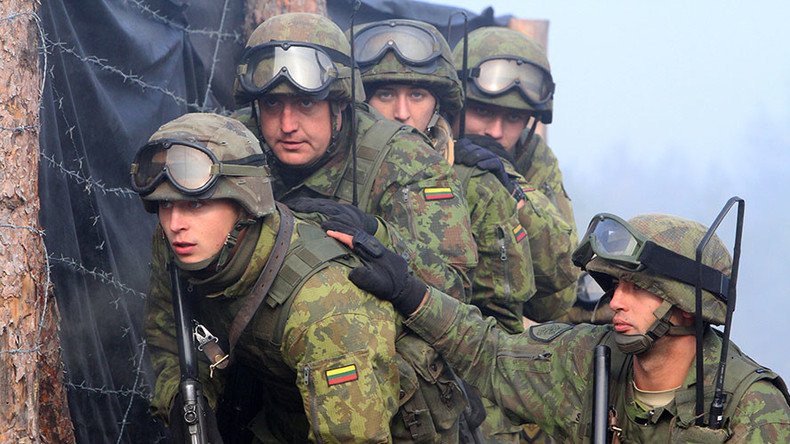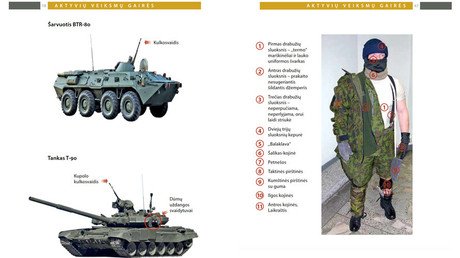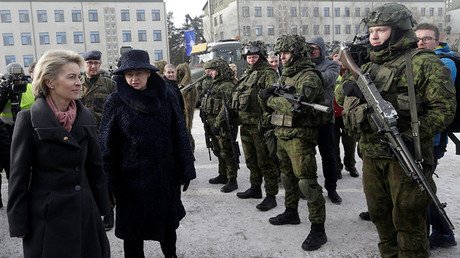‘Hysterical Russophobia’: Moscow blasts Lithuanian report on numerous Russian ‘threats’

Lithuanian intelligence agencies have produced a security report claiming that Russia threatens the country in numerous ways, from a possible military incursion to promoting a positive image of itself. The Kremlin called the report an example of “hysterical Russophobia.”
The annual report was published on Monday by Lithuania’s State Security Department (VSD) - an agency responsible for foreign intelligence and counterintelligence - and the Defense Ministry’s 2nd Department of Operations, the country’s military intelligence body.
Among other things, the Lithuanian spooks said Russia could launch a surprise attack against the Baltic republic in 24 to 48 hours, or use a joint military exercise with Belarus in September for provocation against Lithuania. Other threats to state security mentioned in the report included the backing of the construction of a nuclear power plant in Belarus and the use of social and traditional media to promote a positive image of Russia.
Commenting on the publication, Kremlin spokesman Dmitry Peskov said it was “another example of Russophobia, which is being imposed by actors inside [the three Baltic nations] and outside of them. A total, hysterical Russophobia.”
He added that Moscow was seeking good relations with the Baltic nations and regretted that this intention was not reciprocated.
“It would take time and political will to cool down this propagandistic fervor and allow the peoples of those nations to have objective information,” he said.
The Lithuanian report alleged that the Zapad 2017 war games, which Russia and Belarus will hold in September, may result in provocation against the country, which borders Belarus.
The intelligence agencies said it was “conceivable that the actual number of troops participating in that drill would be much higher [than the announced 13,000] and that it would simulate an armed conflict with NATO.”
The report also stated that Russia could launch a surprise attack against Lithuania in just 24 to 48 hours, using its exclave of Kaliningrad as a foothold for an invasion.
“The signal of the report is that NATO and Lithuania must be prepared for a conflict in 24-48 hours. This is a signal to both NATO and us,” said Defense Minister Raimundas Karoblis, commenting on the report.
Like the Kremlin, the Belarusian Defense Ministry was dismissive of the Lithuanian allegations, saying it did not comment on “speculation.”
In addition to what the report branded as Russia’s “aggressive foreign policy,” it mentioned less tangible threats to Lithuania allegedly posed by Moscow. One of them is the Belarusian nuclear power plant (BelAES) project, which involves the construction of two reactors near the town of Ostrovets, some 50km from the Lithuanian capital, Vilnius.
A Russian civilian nuclear power company, a subsidiary of the state-owned Rosatom, is the prime contractor for the project. The Lithuanian spies believe that the project is motivated by politics rather than commerce and that Russian efforts to promote the project threaten the country’s national security.
Lithuania was forced to close its own nuclear power plant near the town of Ignalina in 2009 as a condition for its accession to the EU. Before its shutdown the plant covered over 70 percent of electricity consumed by the country.
Russia’s effort to improve its image was also mentioned in the report as a threat to Lithuania.
“Russia is spreading its propaganda, aiming to imprint a positive image in the hearts and minds of the Westerners through television, internet, [and] social media,” said VSD chief Darius Jauniskis, as he was presenting the report.















